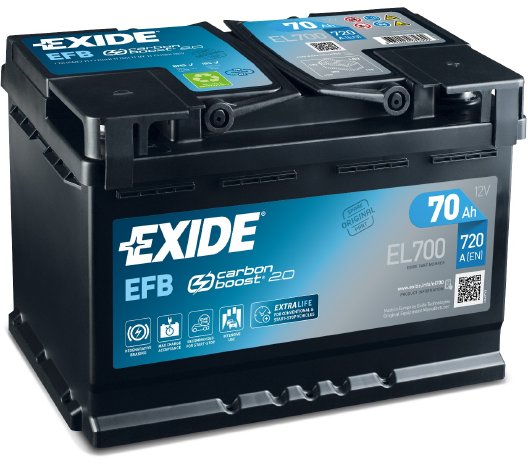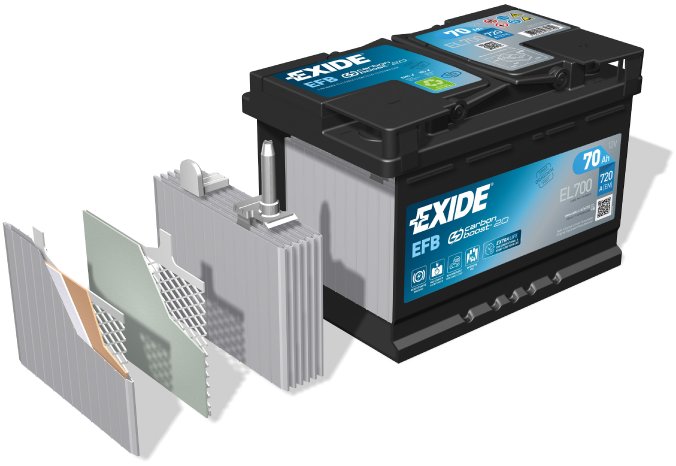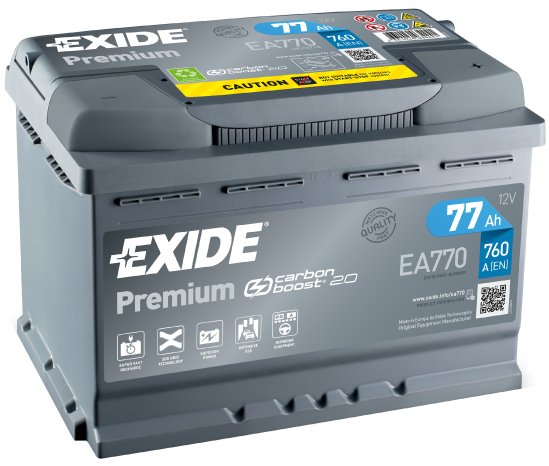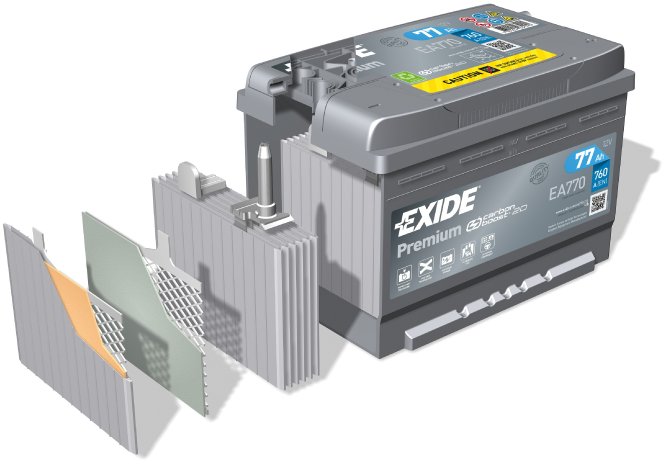Carbon Boost is a unique, original equipment solution designed by Exide in collaboration with major car manufacturers. Now, the company’s Carbon Boost 2.0 will take performance to the next level. The innovative technology uses improved carbon additives that combine an optimized surface structure with significantly better conductivity. This enables a better current flow within the battery, resulting in improved charge acceptance. It also helps to dissolve the lead sulphate deposits that usually consolidate on a battery’s discharged negative plates, reducing its ability to recharge efficiently.
Stringent new EU regulations have set a CO2 emission limit of 95g/km in vehicle homologation testing by 2021. The new global test protocol, the Worldwide Harmonized Light Vehicles Test Procedure (WLTP), for the first time measures the depletion of the battery capacity during testing and converts it into the equivalent fuel consumed and CO2 emitted by a car. In other words, the battery should retain a high percentage of its initial capacity to help car makers avoid being penalized when passing certain thresholds. The recharging process accounts for just 8 percent of the total test duration, with the remainder spent on discharge. Exide´s solutions are designed to ensure the highest possible energy recovery in a short time.
The Carbon Boost 2.0 technology now featured in the new Exide EFB (enhanced flooded batteries) range achieves an exceptional dynamic charge acceptance. Compared with previous EFB generations, 75 percent more energy is recovered in the same amount of time. This allows the new Exide EFB range to exploit regenerative braking energy to a much higher extent, and therefore contributes to meeting the new vehicle emission targets.
Michael Geiger, Vice President, Sales and Marketing, Exide Technologies, EMEA, confirmed: “Exide has always been at the forefront of battery innovation. The impact of Carbon Boost 2.0 extends well beyond original equipment. The benefits are equally delivered to our aftermarket customers through this unique technology, which is new to EFB and upgraded in our Premium range batteries.”
The higher dynamic charge acceptance for EFB and faster recharge for Premium batteries generate a range of additional efficiencies.
For Exide’s new EFB offering installed in cars with regenerative braking – given that in a braking phase, time is limited to a few seconds – Carbon Boost 2.0 allows the battery to accept greater charging current, resulting in the battery remaining at a higher state of charge (SoC). This ensures that the Start-Stop system is not disabled by the battery management system but continues to deliver fuel savings and reduced CO2 emission over time.
Exide Premium batteries with Carbon Boost 2.0 for cars with conventional powertrains now recharge twice as fast compared with other standard flooded batteries. By maintaining a healthy state of charge for longer, the battery’s overall service life increases and the risk of breakdowns is significantly reduced.
Both ranges keep aftermarket customers at the cutting edge of energy efficiency. Car drivers can also enjoy the benefit of lower running costs, thanks to fuel savings and fewer battery replacements. Carbon Boost 2.0 is available for the first time on Exide’s EFB range, and as an upgrade on its Premium batteries, beginning in June, 2019.
Autopromotec visitors are welcomed at the Exide stand in Hall 18, Stand B06 to find out more.
Trademark notice
Exide and Carbon Boost are registered trademarks of Exide Technologies.




